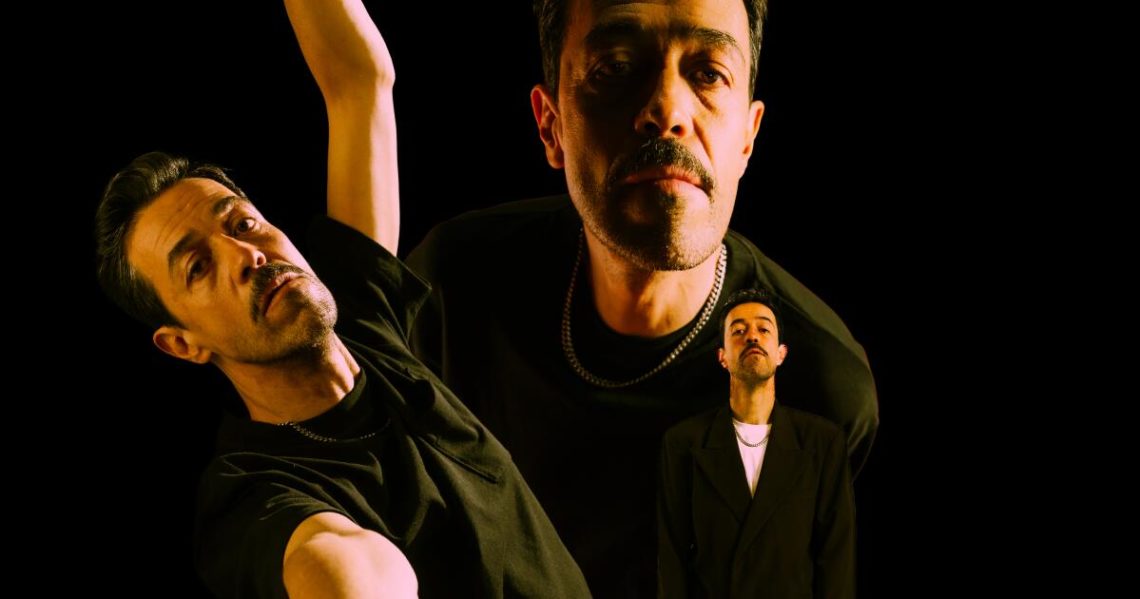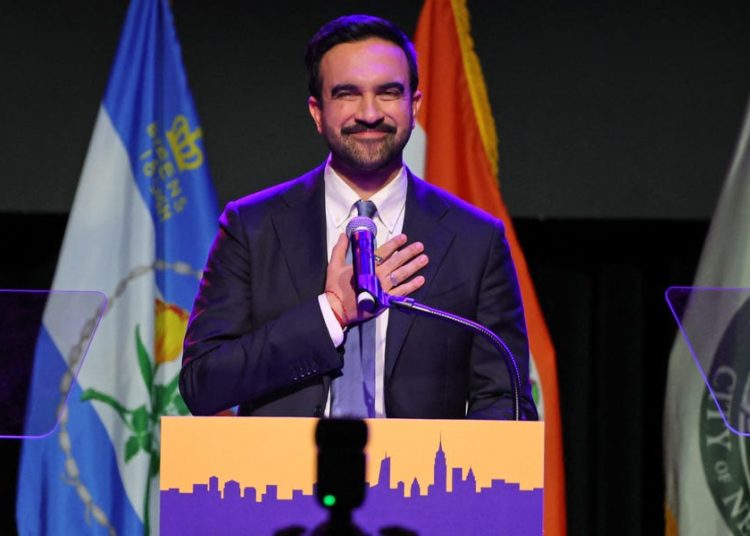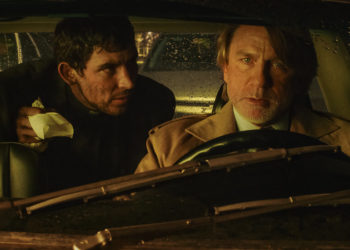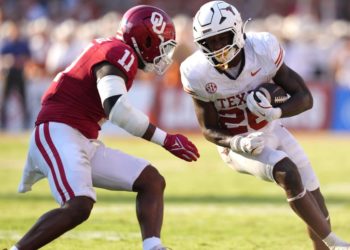The summer rain in Mexico City has been driving Meme del Real crazy. “This season of permanent torrential downpour gets to a point where you’re like, ‘Enough,’ he says with a sigh. “There’s people who really enjoy it, but I’m done. It’s too much introspection to be in here all day, to not be able to go outside. It forces you to try other things, to find a conversation within that rather than a resistance.”
Surrender has been a big theme lately in the life of the longtime vocalist and keyboardist of legendary Mexican alt-rock group Café Tacvba. Del Real — a Swiss Army Knife of a musician who has produced for the likes of Julieta Venegas and Natalia Lafourcade, among others — has been unpacking his life after a recent move back to the Mexican capital, after five years in the idyllic Valle de Bravo. About two hours away from CDMX, the lakeside town became his district of solitude.
It was in this escape from city life that the singer-songwriter was able to be quiet enough to tap into something beyond himself. With his own studio, a broad space overlooking a forest, he had the mental space to look inward. Perhaps more importantly, he gave himself permission to welcome the inspiration that arrived without him seeking it.
“It’s not that I went to this place and said, ‘OK, now I’m going to find inspiration.’ It was more of a tension within myself that naturally unraveled,” says Meme of his “Walden” moment. “From that exercise of exploring old songs and ideas in process, something started to bloom within me in a way that had never happened before. It was a moment that invited me into a solitary process that I hadn’t undertaken with any formality or intention. If these songs have anything to do with where I was physically at the time, I do think that distance I had from everything manifested itself as music.”
The songs on Del Real’s first solo album — the title yet to be revealed — plumb the depths of silence and sonic expansion. He is unpretentious in his experiments and unafraid to get playful. “Tumbos” is a warbling electronic love song intercepted at times by plinking bachata strings. Del Real swelters on futuristic bolero “Incomprensible,” which takes the old-school Cuban torch-song genre and pitches its emblematic guitar to psychedelic new heights. Atmosphere is everything here: Two of the soon-to-be-released tracks border on ambient, zeroing in on the sounds of church bells and chirping birds and the expansive feeling of mushrooms blooming across a forest floor.
These little mountains of fire blaze with a gentle heat emanating from Del Real’s voice. Die-hards and casual fans of Café Tacvba have heard “Eres” at least in passing, a smash from the group’s 2003 album, “Cuatro Caminos,” that features Del Real on lead vocals. He’s still singing about love: Careening norteña-inspired “Embeces” sees Del Real’s voice soar over warbled trumpets, and lead single “Princesa” layers cinematic orchestration with trip-hop beats and sweltering lyrics about failed promises and proclamations of loyalty.
For those who can’t get enough, Del Real is set to preview some of the new music with a special performance on Sept. 2 at the Grammy Museum.
“These songs arrived, and I couldn’t look the other way. It was an instinct that was stronger than me, a now-or-never moment,” says Del Real. “I’ve found that every unknown and every challenge has left me with a lesson. When I’m onstage [with Café Tacvba], I play and sing, but I also love to dance and express myself with my body. Before we can play, when we’re children, we hear a rhythm and dance. It doesn’t matter if you look ridiculous, but you made something. It’s better to make a fool of yourself and experiment rather than not live what you’re feeling.”
De Los spoke with Del Real over Zoom from Mexico City as he’s settling into a number of beginnings: a new home, a new daily rhythm and his first solo project, which is out next month.
There are so many places where artists go to isolate and channel, but you weren’t looking for that at all. Listening to the album, I heard the parallels between the songs and the space that natural environments bring. There are two tracks that border on ambient, focusing on the sounds of a church bell and a small sound that grows into an encompassing roar. The creative act is intuitive and spontaneous, and I think it makes a symmetry with the cycles and forms of nature. Having such a tangible way to witness creation left a deep impression on me, to be in such an exuberant forest coexisting with so much.
How was making this solo record different from making a Café Tacvba record?I have a certain experience of creation with the band — of making an album, a project, a video, a tour, a spectacle — but these songs manifested themselves almost like they rose out of the floor to meet me. At my old house, the studio I made was surrounded by a massive forest. I really felt like I was yet another element of nature in that cycle of life that I had to live there. Something bloomed in that moment for me. More than the result, the experience itself for me was its own project, and it’s been so personally valuable to me that anything that comes of that is a consequence, an extra gift. The process was transformative, like nature itself, something that couldn’t be controlled or manipulated.
I love that you describe the songs as arriving; that’s very different than creating with the intention of connecting to a muse. To your point about movement, there’s so much of it here: bachata, cumbia, electronic music … so much to dance to. Everything you describe came about very organically. My dad was a musician, and he devoted his life to music. At home, my mom and dad and siblings and I all grew up hearing a lot of music across genres. I got very familiar. Watching my dad [on the trumpet] with his orchestra play at parties, specifically all of these formal Latin American genres to dance to …
When I started making the songs, the genres rose out pretty organically. If it came out sounding like Ministry or a norteña or a bolero or disco or punk, then that’s what it was. If creating doesn’t have that playful factor, if it doesn’t translate honesty, then it becomes so intellectualized. I think it’s a balance between spontaneity, a game between the organic, the intellectual, the conceptual. When I listened to all the songs, I really didn’t know if it was an album. I approached Gustavo Santaolalla [Godfather of Latin rock] to get his feedback, and that’s when it became clear to me that something was happening.
The songs were there, as I built them there in this place I described to you, like beyond just composing on guitar, piano and making a demo, it was like, “Well, what if I add something else?” I started experimenting, and before I knew it, there were already quite robust and complex arrangements in most of them. But another thing is that, when I [would] bring a demo to [Café Tacvba], I [would] sing it, and that [was] it. But in this case, the same thing. Gustavo told me, “Hey, one of the things that’s interesting is the way you’re singing … What’s happening on a vocal level, that seems to me to be revealing a very clear picture of you at this moment.” So, nothing, it stayed that way.
When I was trying to find the throughline here, I was thinking about the subject matter: There’s a lot of love and yearning here. Would you consider yourself a romantic?Based on some interviews I’ve been doing, they haven’t asked me this question, but the term “romantic” has come up. And it’s not that I’ve thought about it or assumed it, but I think that if romantic means, in my case, finding a translation of what I feel and what I reflect on and resonating well with it, then yes.
I’ve also found myself — who hasn’t in these times? — being attentive and reflecting on the issues that are happening around the world, all the horrors of certain situations and in certain regions. But I definitely find that there is beauty in human relationships or in personal relationships, in relationships with your personal, universal, cosmic or internal ecosystem, with paradoxes, with what is opposed. I don’t know if that’s romantic, but that’s it. Even at the end of the world, in the midst of so much horror, love and beauty are the things that give us the desire to want to go on, right?
This album is so sonically forward-thinking, and I’d say it’s aligned to the current zeitgeist of genre mixing. Where do you situate it?I am also very attracted to the way in which I don’t understand much of what is happening with these new generations and all the music, all the art and creation that is taking place. It seems that, as in other eras, attention was focused on the situations that were happening around them, socially and politically, and there was a lot of talk about it and criticism was made. Today, it seems that this generation is not observing that, but I have discovered in my theory that discourse is more powerful precisely because it is not talked about directly, but rather it is talked about as, “I am going to have a good time and enjoy it because this is coming to an end … I have no choice but to take what I have and what I can do and what I can experience with my gang, with my people, and with this global digital community.”
I find that very powerful and very sad at the same time. I mean, it’s very sad to think that there is a generation that sees the world as ending. That’s my take on it — that there’s little hope, that everything is so complex that it’s better not to look at that. “Just look at what’s in front of me, because I’m young and because if I don’t take advantage of my youth to have a good time right now, I don’t know if I’ll make it to the next stage. Or I don’t see how.”
In our time, at least in my time, I think there was more. The outlook was clearer. You could see further ahead.
This interview was conducted in Spanish, translated, edited and condensed for clarity.
The post To write his solo debut, Café Tacvba’s Meme del Real first had to surrender appeared first on Los Angeles Times.




